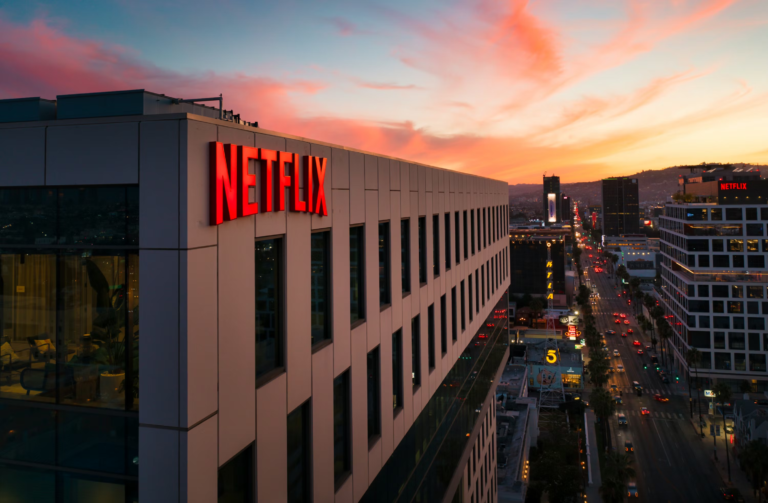Sainsbury’s, one of the UK’s leading supermarket chains, recently announced a promising increase in its profits, driven largely by the return of people to office work. However, Sainsbury’s also warned that the rising cost of national insurance contributions (NICs) could lead to higher grocery prices for customers. Let’s take a closer look at how these changes impact both Sainsbury’s and its customers.
Profits Climb as Food Sales Grow
Sainsbury’s reported pre-tax profits of £356 million for the first six months of the financial year, a 4.7% increase compared to the same period last year. The boost was largely due to a 5% increase in grocery sales, as many people have returned to the office, shifting their shopping patterns. More people are now doing a big weekly grocery shop rather than frequent smaller trips, which has helped increase sales.

Simon Roberts, the chief executive of Sainsbury’s, explained this trend: “There is a big return to the big weekly shop, and we’re winning those big weekly shops just at a time that more and more people are going back to the office more days a week.”
Changing Eating Habits Support Sales Growth
Another factor contributing to the rise in Sainsbury’s grocery sales is that many customers are opting to eat at home rather than dining out, a shift that started during the COVID-19 pandemic and seems to be continuing. Eating out has become more costly, and people have realized they can enjoy high-quality meals at home, especially with Sainsbury’s “Taste the Difference” range. This premium range offers restaurant-quality meals that are convenient for customers to prepare and enjoy at home.
In fact, sales of the “Taste the Difference” range grew by 18% in the first half of the year compared to the same period last year. Roberts noted that people are increasingly choosing to celebrate special occasions at home, which has boosted sales in this category.
“We’re seeing customers continuing to choose to eat more at home,” Roberts said. “Eating out has become more expensive, and they’re recognizing more and more the restaurant quality of our Taste the Difference ranges.”
Challenges Faced by Argos
While Sainsbury’s grocery division performed well, the company faced some challenges in its non-food business, particularly with Argos, its catalog retailer. Sales at Argos dropped by 5% in the first quarter compared to the previous year. This decline highlights some of the difficulties that Sainsbury’s is facing outside its core grocery business.
Higher NIC Costs Could Lead to Grocery Price Increases
A recent budget decision by the UK government may impact Sainsbury’s grocery prices. In the budget, Chancellor Rachel Reeves announced that employers’ NICs would rise by 1.2%, going from 13.8% to 15% starting in April next year. This change is expected to increase Sainsbury’s NIC costs by £140 million annually, putting pressure on the company’s finances.
Roberts explained that the supermarket industry operates on very low profit margins. This means that companies like Sainsbury’s don’t have much flexibility to absorb extra costs without affecting prices. “This industry operates on very low margins, and there just isn’t the capacity in the structure of the way the supermarket industry works to absorb these level of costs without some impacts on inflation,” he said.
Roberts also mentioned that Sainsbury’s would try its best to manage these costs and avoid price increases. However, he acknowledged that some inflationary impact is likely unavoidable due to the rising NIC expenses.
Sainsbury’s Urges Government to Address Business Rates
In addition to concerns about NICs, Roberts expressed disappointment that the government did not address business rates in the recent budget. Sainsbury’s pays over £500 million in business rates each year, with 80% of its stores subject to these taxes.
Roberts argued that business rates reforms were mentioned in the government’s manifesto, creating an expectation that changes would be made. Many retailers had hoped for relief on business rates, especially as these rates continue to rise. Unfortunately, no such changes were included in the latest budget, leaving retailers like Sainsbury’s with significant financial burdens.
“There was a clear expectation that we saw in the manifesto,” Roberts said. “We would strongly urge the government to move more quickly on the reform of business rates for all retail stores.”
Roberts added that business rates will actually go up next year for Sainsbury’s, increasing their financial challenges further.
Impact on the Farming Community
Beyond retail, the recent budget also affects the UK’s farming community, which provides essential supplies to supermarkets like Sainsbury’s. The government has introduced a plan to remove the agricultural property relief inheritance tax exemption for farms valued over £1 million. This decision has sparked significant concern among farmers, who are now facing the possibility of higher taxes on their land.

The National Farmers’ Union has responded strongly, announcing plans for a major protest in London later this month. They intend to voice their opposition and urge the government to reconsider the policy.
Roberts expressed support for the farming community, recognizing the essential role farmers play in the country’s food supply. He urged the government to listen to the concerns of farmers and consider their requests for changes. “Given the concerns that farmers are raising, and the critical role they play in our country, I really urge the government to listen to them and try to find a solution,” he said.
Looking Ahead
While Sainsbury’s has enjoyed a positive first half of the financial year, it faces challenges in the months ahead. The increase in NICs and the continued high business rates will likely put pressure on the company’s finances and could lead to higher prices for consumers.
The budget decisions have also created uncertainty for farmers, which could have an indirect effect on supermarket chains like Sainsbury’s if agricultural costs rise. As Sainsbury’s navigates these challenges, the company will need to balance its need to cover rising costs with its commitment to providing affordable groceries.








